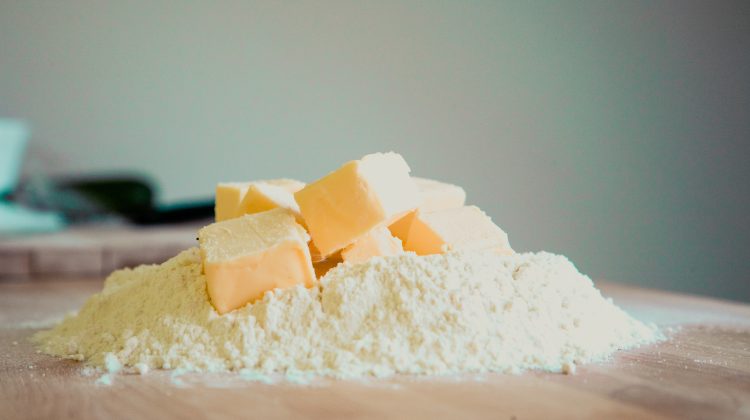
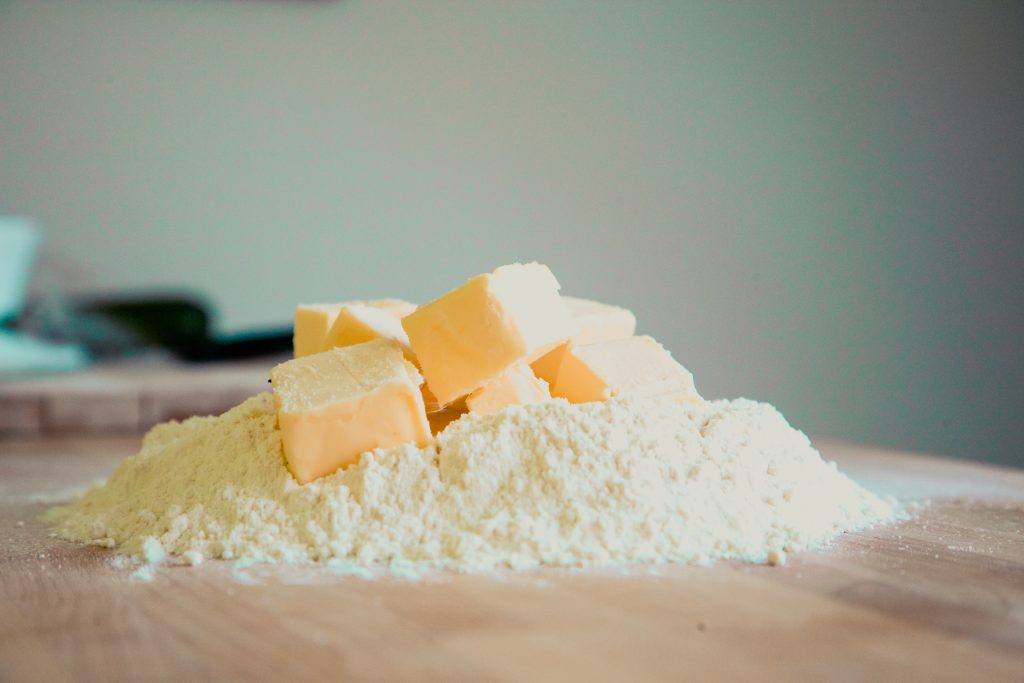
When it comes to cooking and baking, butter is a common ingredient used to add flavor and texture to dishes. However, some people may prefer to limit their consumption of butter due to its high fat content. Luckily, there are plenty of delicious and healthy butter substitutes available that can be used in a variety of recipes.
In this article, we will explore 20 of the healthiest butter substitutes, including both plant-based and dairy-free options. Whether you’re vegan, lactose intolerant, or simply looking to make healthier choices in the kitchen, there is a butter substitute on this list that will suit your needs.
Why would you want to buy a healthy butter substitute over regular butter?
One of the main reasons why you might want to buy a healthy butter substitute over regular butter is for health concerns. While butter may be a staple ingredient in many recipes, it is high in saturated fat, which can contribute to high cholesterol levels and an increased risk of heart disease. Choosing a healthy butter substitute that is lower in saturated fat and higher in healthy fats and nutrients can help you maintain a healthy diet while still enjoying your favorite dishes.
Another reason to consider a healthy butter substitute is if you have dietary restrictions, such as following a vegan or dairy-free diet. There are many plant-based and dairy-free butter substitutes available that can be used in the same way as traditional butter, making it easy to still enjoy your favorite recipes.
Also, using a healthy butter substitute can add some variety and excitement to your cooking and baking. With so many options available, such as avocado, nut butter, and coconut oil, you can experiment with new flavors and textures in your dishes.
So, let’s dive in and discover some tasty and nutritious alternatives to traditional butter!
1. Avocado
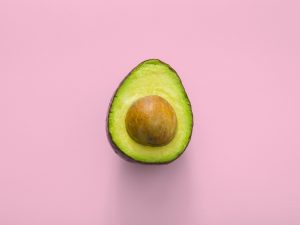
Avocado is a popular and versatile healthy butter substitute that has been gaining popularity in recent years. Rich and creamy, avocado can be used in a variety of recipes, from toast to baked goods to salad dressings. But what makes avocado such a great substitute for butter?
For one, avocado is loaded with healthy monounsaturated and polyunsaturated fats, which can help to lower bad cholesterol levels and reduce the risk of heart disease. Additionally, these healthy fats can help to keep you feeling full and satisfied for longer, making avocado a great addition to a weight-loss or weight-maintenance diet.
Avocado is also rich in vitamins and minerals, including vitamin K, vitamin E, potassium, and folate. Vitamin K is important for bone health, while vitamin E is an antioxidant that can help to protect cells from damage. Potassium is essential for regulating blood pressure and heart function, while folate is important for fetal development during pregnancy.
Another benefit of using avocado as a healthy butter substitute is that it adds a creamy and delicious flavor to dishes without the negative health impacts of traditional butter. Plus, avocado is a great source of dietary fiber, which can help to improve digestion and prevent constipation.
2. Coconut oil
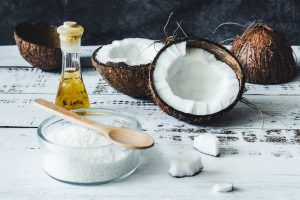
Coconut oil is another popular and healthy butter substitute that has gained popularity in recent years. It is a rich source of medium-chain triglycerides (MCTs), which are a type of healthy fat that can be easily digested and converted into energy by the body. This makes coconut oil a great option for those looking for a quick and sustained source of energy, such as athletes or those with busy lifestyles.
In addition to its energy-boosting benefits, coconut oil is also rich in antioxidants, which can help to protect cells from damage and reduce inflammation in the body. The MCTs in coconut oil have also been shown to have antibacterial and antifungal properties, which can help to support a healthy immune system.
Coconut oil is also a good source of vitamin E, which is an important antioxidant that can help to protect the skin from damage and keep it looking healthy and radiant. Plus, coconut oil has been shown to have moisturizing and anti-aging benefits for the skin, making it a great addition to your skincare routine.
Another benefit of using coconut oil as a healthy butter substitute is that it has a delicious and slightly sweet flavor that can add a unique twist to your recipes. It is especially great for baking, as it can help to create a light and fluffy texture in cakes and other confectioneries.
3. Nut butters
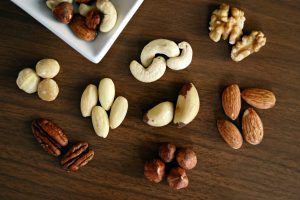
Nut butters have been gaining in popularity in recent years, and for good reason. These spreads made from ground nuts such as almonds, peanuts, cashews, and more, are packed with nutrition and are an excellent source of healthy fats, fiber, and protein. One of the biggest health benefits of nut butters is their ability to help lower the risk of heart disease.
They are rich in monounsaturated and polyunsaturated fats, which have been shown to improve cholesterol levels and reduce inflammation in the body. Nut butters are also a great source of protein, which is essential for building and repairing tissues in the body.
They also contain important vitamins and minerals, such as vitamin E, magnesium, and potassium, which can help boost overall health and wellbeing.
In addition, nut butters are a great option for those following a plant-based or vegan diet, as they provide a good source of protein without relying on animal products. Whether you enjoy nut butters on toast, in smoothies, or as a dip for fruits and vegetables, these spreads offer a tasty and nutritious way to boost your health and wellbeing.
4. Vegan butter
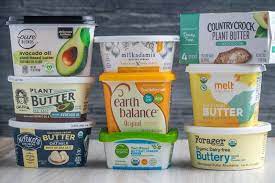
Vegan butters are a great option for those who want a healthier, plant-based alternative to traditional butter. There are a variety of vegan butter options available on the market today, including brands like Earth Balance, Miyoko’s, and Country Crock Plant Butter.
One of the main benefits of vegan butters is that they are typically lower in saturated fat and higher in healthy monounsaturated and polyunsaturated fats. This can help to reduce the risk of heart disease and lower cholesterol levels. Vegan butters are often made with natural and wholesome ingredients, such as coconut oil, soybean oil, and almond butter, making them a great choice for those looking to make healthier choices in their cooking and baking.
Another benefit of vegan butters is that they are often fortified with important vitamins and minerals. For example, Earth Balance’s vegan butter contains added vitamin B12, which is essential for proper nerve function and DNA synthesis. Miyoko’s vegan butter is made with cultured cashew milk, which contains healthy probiotics that can help to support gut health.
Vegan butters are also a great option for those with lactose intolerance or a dairy allergy. They are made with plant-based ingredients, such as soy or nuts, which do not contain lactose or casein, the proteins found in dairy that can cause digestive issues and allergic reactions in some people.
5. Applesauce
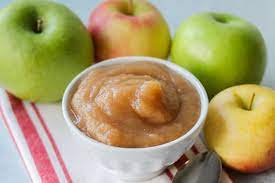
Applesauce is a healthy and flavorful alternative to butter that can be used in a variety of recipes, from baking to cooking. One of the main benefits of using applesauce as a butter substitute is that it is much lower in calories and fat than traditional butter, which can help to reduce the overall calorie and fat content of your dishes.
Applesauce is also a great source of dietary fiber, which can help to improve digestion, regulate blood sugar levels, and promote feelings of fullness and satiety. Additionally, the high fiber content of applesauce can help to lower cholesterol levels and reduce the risk of heart disease.
Another benefit of using applesauce as a healthy butter substitute is that it contains a range of vitamins and minerals, including vitamin C, potassium, and antioxidants. Vitamin C is important for immune function and collagen production, while potassium is essential for regulating blood pressure and heart function. The antioxidants found in applesauce, such as quercetin and catechin, can help to protect cells from damage and reduce inflammation in the body.
Applesauce is also a great option for those with food allergies or sensitivities, as it is free from common allergens like dairy and gluten. It is also a great option for vegans and vegetarians, as it is a plant-based ingredient.
It is widely known that applesauce is a nutritious and delicious option for those looking to make healthier choices in their cooking and baking. So next time you’re in the kitchen, consider swapping out your butter for some flavorful and healthy applesauce instead!
6. Greek yoghurt
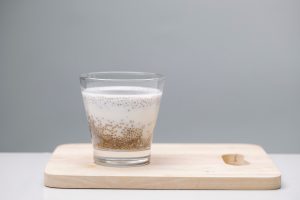
Greek yogurt is a nutritious and versatile ingredient that can be used in a variety of recipes as a healthy butter substitute. One of the main benefits of using Greek yogurt in place of butter is that it is much lower in calories and fat. Greek yogurt contains about half the calories and fat of butter, making it a great option for those looking to reduce their calorie and fat intake.
Greek yogurt is also a great source of protein, which is essential for building and repairing tissues in the body. It contains about twice the amount of protein as regular yogurt, making it a great option for those looking to increase their protein intake. Additionally, the high protein content of Greek yogurt can help to promote feelings of fullness and satiety, which can aid in weight management.
Another benefit of using Greek yogurt as a healthy butter substitute is that it is a great source of probiotics, which are beneficial bacteria that can help to support digestive health and boost the immune system. Probiotics have been shown to help reduce the risk of certain digestive disorders, such as irritable bowel syndrome and inflammatory bowel disease.
Greek yogurt is also a good source of calcium, which is essential for strong bones and teeth. It also contains important vitamins and minerals, such as vitamin B12 and potassium, which are important for proper nerve function and heart health.
7. Pumpkin puree

Pumpkin puree is one of those ingredients that’s typically associated with autumnal flavors and comforting fall dishes. But did you know that it’s also a fantastic healthy butter substitute? Not only is it lower in calories and fat than traditional butter, but it’s also packed with a range of health benefits.
One of the main benefits of using pumpkin puree as a healthy butter substitute is that it’s a great source of dietary fiber. Fiber is important for maintaining digestive health, regulating blood sugar levels, and promoting feelings of fullness and satiety. Just one cup of pumpkin puree contains about 7 grams of fiber, which is about 25% of the recommended daily intake.
Pumpkin puree is also rich in vitamins and minerals, including vitamin A, vitamin C, potassium, and iron. Vitamin A is important for maintaining healthy vision, while vitamin C is essential for immune function and collagen production. Potassium helps to regulate blood pressure and heart function, while iron is important for maintaining healthy red blood cells.
Another benefit of using pumpkin puree as a healthy butter substitute is that it’s a great option for those with food allergies or sensitivities. It’s naturally gluten-free, dairy-free, and vegan, making it a great option for those following a plant-based or allergen-free diet.
So the next time you’re in the kitchen, consider swapping out your butter for some delicious and nutritious pumpkin puree. You can use it in everything from baked goods to soups and stews, and your body will thank you for all the added health benefits!
8. Mashed bananas
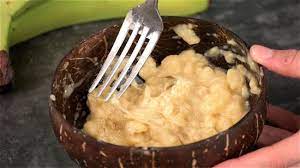
Mashed bananas are delicious and healthy butter substitutes that can add moisture and natural sweetness to a variety of recipes. One of the main benefits of using mashed bananas as a butter substitute is that they are low in calories and fat, which can help to reduce the overall calorie and fat content of your dishes.
Bananas are also a great source of dietary fiber, which can help to improve digestion, regulate blood sugar levels, and promote feelings of fullness and satiety. Additionally, the high fiber content of bananas can help to lower cholesterol levels and reduce the risk of heart disease.
Another benefit of using mashed bananas as an option for healthy butter substitutes is that they are a great source of potassium, which is important for maintaining healthy blood pressure levels and heart function. Bananas also contain important vitamins and minerals, such as vitamin C, vitamin B6, and magnesium, which are important for immune function, nervous system function, and muscle and bone health.
In addition to their health benefits, mashed bananas are also incredibly versatile in the kitchen. They can be used as a natural sweetener in baked goods, added to smoothies and shakes for added creaminess, or even used as a base for healthy pancake batter.
So the next time you’re looking for healthy butter substitutes, consider reaching for some mashed bananas. Your taste buds and your body will thank you for all the added health benefits!
9. Silken tofu
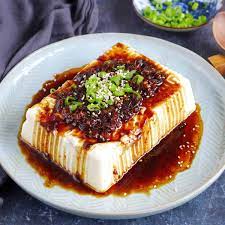
Silken tofu is a unique and versatile healthy butter substitutes that is derived from soybeans. One of the main benefits of using silken tofu as a butter substitute is that it is much lower in calories and fat than traditional butter, which can help to reduce the overall calorie and fat content of your dishes.
Silken tofu is also a great source of protein, which is important for building and repairing muscle tissue, as well as promoting feelings of fullness and satiety. Just one cup of silken tofu contains about 20 grams of protein, which is about 40% of the recommended daily intake.
Additionally, silken tofu is a great source of important vitamins and minerals, including calcium, iron, magnesium, and vitamin B12. Calcium is important for building and maintaining strong bones and teeth, while iron is important for maintaining healthy red blood cells. Magnesium is important for nerve and muscle function, while vitamin B12 is essential for nerve function and DNA synthesis.
Another benefit of using silken tofu as healthy butter substitutes is that it is naturally gluten-free and vegan, making it a great option for those following a plant-based or allergen-free diet.
Silken tofu is incredibly versatile in the kitchen and can be used in a variety of recipes, from desserts to dips and dressings. It can be blended into smoothies for added creaminess, used as a base for vegan cheesecakes, or even used as a substitute for eggs in baking recipes.
10. Butternut squash puree
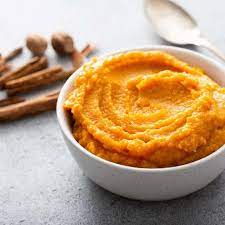
Another great option for healthy butter substitutes is butternut squash puree. This versatile ingredient is not only incredibly tasty, but it also boasts a variety of health benefits that make it a great choice for health-conscious cooks.
One of the main benefits of butternut squash puree is its high nutrient content. This tasty ingredient is packed with vitamins and minerals, including vitamin A, vitamin C, potassium, and fiber. Vitamin A is essential for maintaining healthy vision and immune function, while vitamin C is important for collagen production and immune health. Potassium is important for regulating blood pressure and maintaining healthy heart function, while fiber is essential for promoting healthy digestion and bowel regularity.
Another benefit of butternut squash puree is its versatility in the kitchen. It can be used as a natural sweetener in baked goods, added to soups and stews for added creaminess, or even used as a base for healthy sauces and dips. Plus, because it has a mild flavor, it can easily be incorporated into a wide range of recipes without overwhelming the other flavors.
Butternut squash puree is also a great option for those looking to reduce their calorie and fat intake. Unlike traditional butter, which is high in calories and saturated fat, butternut squash puree is low in calories and virtually fat-free, making it a great choice for those looking to maintain a healthy weight or reduce their risk of heart disease.
So why not give butternut squash puree a try in your next recipe? Whether you’re looking to add a healthy and flavorful twist to your baked goods or simply looking for a healthier butter substitute, butternut squash puree is sure to impress!
11. Sweet potato puree
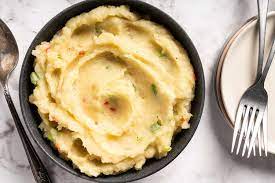
Sweet potato puree is one of the delicious and nutritious healthy butter substitutes that offers a wide range of health benefits. One of the main benefits of using sweet potato puree as a butter substitute is that it is a great source of vitamins and minerals. Sweet potatoes are high in vitamin A, vitamin C, potassium, and fiber.
Vitamin A is essential for maintaining healthy vision and immune function, while vitamin C is important for collagen production and immune health. Potassium is important for regulating blood pressure and maintaining healthy heart function, while fiber is essential for promoting healthy digestion and bowel regularity.
Another benefit of sweet potato puree is that it is low in calories and fat, making it a great option for those looking to reduce their calorie and fat intake. Unlike traditional butter, which is high in calories and saturated fat, sweet potato puree is low in calories and virtually fat-free, making it a great choice for those looking to maintain a healthy weight or reduce their risk of heart disease.
Sweet potato puree is also incredibly versatile in the kitchen and can be used in a variety of recipes, from desserts to savory dishes. It can be used as a natural sweetener in baked goods, added to soups and stews for added creaminess, or even used as a base for healthy sauces and dips.
12. Tahini
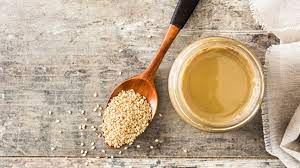
Need more tasty and healthy butter substitutes, tahini is the way to go! This versatile ingredient is made from ground sesame seeds, and has a rich, nutty flavor that can add depth and complexity to a variety of recipes. But the best part? It’s loaded with health benefits!
First off, tahini is a great source of healthy fats. These monounsaturated and polyunsaturated fats are essential for maintaining healthy cholesterol levels and reducing the risk of heart disease. But that’s not all – tahini is also high in protein, fiber, and a variety of vitamins and minerals, including iron, calcium, and magnesium. It’s truly a superfood in its own right!
And the versatility of tahini is truly impressive. From salad dressings and dips to smoothies and baked goods, tahini can be used in so many different ways. Plus, its mild flavor won’t overpower other ingredients, making it the perfect addition to any dish.
If you’re following a vegan or plant-based diet, tahini is a great option to replace traditional butter in recipes. Its creamy texture and nutty flavor make it an excellent substitute, and it’s a great way to add healthy fats and nutrients to your meals.
13. Olive oil
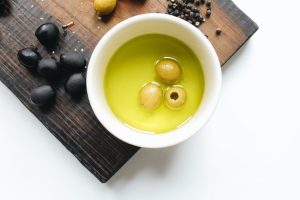
If you’re looking for delicious and healthy butter substitutes, olive oil is a great option to consider. In addition to its delicious flavor, olive oil offers a wide range of health benefits that make it a great choice for anyone looking to improve their overall health and well-being.
As a source of heart-healthy monounsaturated and polyunsaturated fats, olive oil can help reduce the risk of heart disease and improve cholesterol levels. It’s also high in antioxidants, which can help protect against oxidative stress and inflammation, both of which are linked to a variety of chronic diseases.
Incorporating olive oil into your diet is easy – you can use it in place of butter in recipes like roasted vegetables, sautéed greens, and even baked goods. And because it has a relatively low smoke point, it’s best used for low- to medium-heat cooking methods, like sautéing and baking.
So next time you’re looking for healthy butter substitutes, consider reaching for a bottle of olive oil instead. Your taste buds and your body will thank you!
14. Sunflower seed oil

If you’re looking for delicious and healthy butter substitutes, sunflower seed butter is definitely worth considering. Made from ground sunflower seeds, this nutty and creamy spread is packed with a wide range of nutrients that offer numerous health benefits.
First off, sunflower seed butter is a great source of healthy fats. It’s high in monounsaturated and polyunsaturated fats, which can help reduce the risk of heart disease and improve cholesterol levels. Additionally, it’s a good source of protein, fiber, and a variety of vitamins and minerals, including vitamin E, magnesium, and selenium.
Another great thing about sunflower seed butter is that it’s a great option for those with nut allergies. Because it’s made from seeds rather than nuts, it’s a safe alternative for anyone who needs to avoid peanuts or tree nuts.
Incorporating sunflower seed butter into your diet is easy – it can be used in the same way as traditional butter, whether spread on toast or used in recipes like muffins, granola bars, or smoothies. And because it has a mild, nutty flavor, it can add depth and complexity to a variety of dishes.
15. Flaxseed oil
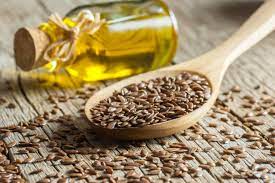
Flaxseed oil is a great option for anyone looking for healthy butter substitutes that offers numerous health benefits. This oil is made from the seeds of the flax plant and is high in a variety of nutrients that can help support overall health and wellness.
One of the main benefits of flaxseed oil is that it’s high in omega-3 fatty acids, which have been shown to be beneficial for heart health. These essential fatty acids can help reduce inflammation, improve cholesterol levels, and lower the risk of heart disease.
Flaxseed oil is also a good source of lignans, which are a type of plant compound that have antioxidant and anti-inflammatory properties. These compounds have been linked to a reduced risk of breast cancer and may also help support hormonal balance.
In addition to its heart-healthy and anti-inflammatory properties, flaxseed oil may also help support brain health. Some studies have found that consuming omega-3 fatty acids may help improve cognitive function and reduce the risk of age-related cognitive decline.
To incorporate flaxseed oil into your diet, you can use it in the same way as traditional butter – for example, spread on toast or used in recipes like muffins or granola bars. Just be sure to store it in the refrigerator to prevent it from going rancid, and don’t use it for cooking at high temperatures, as it has a relatively low smoke point.
16. Ghee
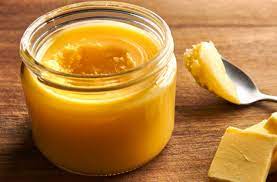
Ghee is a type of clarified butter that has been used in traditional Indian cooking for centuries. It’s made by heating butter until the milk solids separate and are removed, leaving behind a golden liquid that has a rich, nutty flavor. While it’s a type of butter, ghee is lactose-free and often better tolerated by those with dairy sensitivities.
One of the main benefits of ghee is that it’s high in healthy fats and contains a good balance of omega-3 and omega-6 fatty acids. These essential fatty acids are important for heart health and can help reduce inflammation throughout the body.
Ghee is also rich in vitamins A, D, and E, all of which are important for maintaining healthy skin, hair, and nails. Additionally, these vitamins have antioxidant properties, which can help protect the body from damage caused by free radicals.
Another benefit of ghee is that it’s a good source of butyric acid, a type of short-chain fatty acid that has been shown to have anti-inflammatory properties and may help support digestive health. Some research has even suggested that butyric acid may be helpful in reducing the risk of colon cancer.
17. Soy margarine
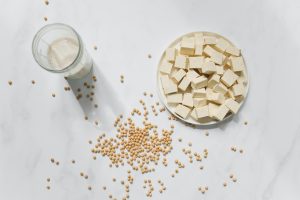
Soy margarine is a type of healthy butter substitutes that is made from soybean oil and often contains other plant-based oils such as canola or olive oil. It’s a popular option for those who are looking for a vegan or dairy-free alternative to butter.
One of the main benefits of soy margarine is that it’s lower in saturated fat than regular butter. Saturated fat is known to increase the risk of heart disease, and reducing intake can help lower cholesterol levels and improve overall heart health. Soy margarine is also cholesterol-free, which is an added benefit for those looking to manage their cholesterol levels.
Soy margarine is also a good source of polyunsaturated and monounsaturated fats, which are the healthy fats that are important for brain function, skin health, and reducing inflammation throughout the body. These fats are also helpful for maintaining healthy cholesterol levels and reducing the risk of heart disease.
Another benefit of soy margarine is that it’s often fortified with vitamins and minerals such as vitamin D, vitamin E, and calcium. These nutrients are important for maintaining strong bones and teeth, supporting immune function, and promoting healthy skin.
18. Vegan cream cheese
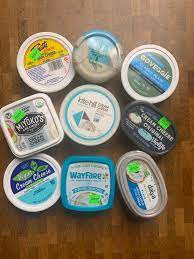
Vegan cream cheese is a dairy-free alternative to traditional cream cheese that is made from plant-based ingredients such as soy or nuts. It’s a popular choice for those who follow a vegan or lactose-free diet but still want to enjoy the creamy texture and tangy flavor of cream cheese.
One of the main benefits of vegan cream cheese is that it’s lower in saturated fat and cholesterol compared to regular cream cheese. Saturated fat and cholesterol can contribute to heart disease, so reducing intake can help improve overall heart health. Vegan cream cheese is also often made with healthier fats such as plant-based oils, which are important for brain function, reducing inflammation, and maintaining healthy cholesterol levels.
Vegan cream cheese is also a good source of plant-based protein and fiber, which are essential for overall health and well-being. Protein is important for building and repairing tissues, while fiber helps to promote healthy digestion and keep you feeling full and satisfied.
Another benefit of vegan cream cheese is that it’s often fortified with vitamins and minerals such as vitamin B12 and calcium. Vitamin B12 is important for nerve function and energy production, and is typically found only in animal products, so it’s important for vegans to get it from fortified foods. Calcium is important for maintaining strong bones and teeth, and is also essential for proper muscle and nerve function.
19. Vegan sour cream
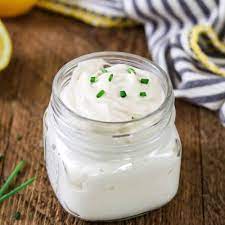
If you’re on the hunt for healthy butter substitutes, look no further than vegan sour cream! Not only is it a delicious plant-based alternative to traditional sour cream, but it also comes with a host of health benefits.
One of the main advantages of vegan sour cream over regular butter is its lower saturated fat and cholesterol content. Saturated fat and cholesterol can increase the risk of heart disease, making vegan sour cream a heart-healthy option for those looking to reduce their intake of these harmful substances.
In addition to being lower in unhealthy fats, vegan sour cream is often made with healthier fats such as plant-based oils, which are important for maintaining healthy cholesterol levels and reducing inflammation in the body. This makes it a great option for those looking to improve their overall health and wellbeing.
Vegan sour cream is also a good source of plant-based protein, which is essential for building and repairing tissues in the body. So, the next time you’re looking for a healthy butter substitute, consider giving vegan sour cream a try – your taste buds (and your body) will thank you!
20. Nutritional yeast
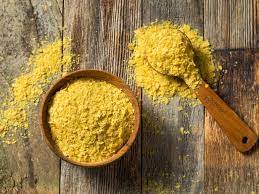
Nutritional yeast is a popular ingredient in vegan and vegetarian cooking, known for its nutty, cheesy flavor. But did you know that it also comes with a range of health benefits?
Firstly, nutritional yeast is a great source of vitamins and minerals, including B vitamins, zinc, and magnesium. B vitamins are essential for energy production and brain function, while zinc is important for a healthy immune system and wound healing. Magnesium, on the other hand, is important for healthy bones, muscles, and nerves.
Nutritional yeast is also a complete protein, meaning that it contains all nine essential amino acids that our bodies cannot produce on their own. This makes it a great source of protein for vegetarians and vegans, who may struggle to get enough protein in their diets.
Aside from its nutrient content, nutritional yeast also contains beta-glucans, which are a type of soluble fiber that have been shown to improve immune function and reduce inflammation in the body.
Frequently Asked Questions
When it comes to margarine, there is no one-size-fits-all answer. The healthiest type of margarine will depend on your individual dietary needs and preferences.
If you are looking for a low-calorie option, then a light or reduced-fat margarine may be the best choice. These types of margarines contain fewer calories than regular varieties and can help you stick to a healthy diet. However, they may also contain fewer beneficial nutrients like vitamin E and omega-3 fatty acids.
When it comes to finding a substitute for butter to reduce cholesterol, there are many options available. One of the most popular substitutes is a plant-based spread such as Earth Balance or Smart Balance. These spreads are made with plant oils and some contain added omega-3 fatty acids, which can help reduce cholesterol levels.
Additionally, olive oil and avocado oil are great alternatives for cooking and baking. They both contain monounsaturated fats, which can help lower cholesterol levels. Finally, applesauce is also an excellent substitute for butter in baking recipes. Applesauce adds moisture and sweetness to baked goods without the unhealthy saturated fats found in butter.
Yes, olive oil is a great source of healthy fats. It is rich in monounsaturated fatty acids, which are known to reduce the risk of heart disease and stroke. Additionally, olive oil contains antioxidants that can help protect cells from damage and may even have anti-inflammatory properties.
Olive oil also has a high smoke point, making it an ideal choice for cooking at high temperatures.
This means that it won’t break down and release unhealthy compounds when heated like some other oils do.
Overall, olive oil is an excellent source of healthy fats that can benefit your health in many ways. It’s a great choice for cooking or as a topping on salads or other dishes.
The answer to this question is not a simple yes or no. Palm oil is a type of edible oil derived from the fruit of the African oil palm tree. It is a popular ingredient in many processed foods and cosmetics due to its relatively low cost, high stability, and ability to remain solid at room temperature.
In terms of health, palm oil contains both saturated and unsaturated fats, which can be beneficial for heart health when consumed in moderation. Since it does contain saturated fat, it should be used sparingly as part of a healthy diet. Additionally, some studies have found that consuming palm oil may help reduce inflammation and improve cholesterol levels.
On the other hand, palm oil has been linked to deforestation and habitat destruction as its production has increased significantly over the past few decades. This has led to environmental concerns regarding global warming and animal habitats being destroyed.
How to shop for a healthy butter substitute.
When shopping for a healthy butter substitute, there are several things to keep in mind to ensure that you’re choosing the best option for your needs. First, be sure to read the ingredient label carefully. Look for options that are made from whole, natural ingredients and avoid those that contain added sugars, artificial preservatives, or other unhealthy additives.
Next, consider the nutritional profile of the butter substitute. While many options are lower in saturated fat than traditional butter, they may still be high in calories or sodium. Look for options that are rich in nutrients like healthy fats, fiber, and protein, and that fit within your overall dietary goals and restrictions.
It’s also important to think about the flavor and texture of the butter substitute. Some options, like avocado or pumpkin puree, may be better suited for sweet or savory dishes, while others, like olive oil or tahini, may have a more distinct flavor that can complement certain recipes.
Finally, consider the cooking method you’ll be using. Some butter substitutes, like coconut oil or ghee, have a high smoke point and are better suited for high-heat cooking methods like sautéing or frying. Others, like applesauce or mashed bananas, may work better in baking or dessert recipes.
The best butter substitute brands to buy.
When it comes to finding the best healthy butter substitutes brand, there are a lot of options out there. Here are some of the best brands to consider when looking for a healthy butter substitute:
- Earth Balance – This brand offers a variety of spreads made with a blend of oils and plant-based ingredients, including coconut oil, canola oil, and olive oil.
- Miyoko’s Creamery – Miyoko’s vegan butter is made with a combination of cashews and coconut oil, and has a rich, creamy flavor.
- Nutiva – Nutiva’s vegan butter is made with a blend of organic coconut oil and avocado oil, and is also gluten-free and soy-free.
- Melt Organic – This brand offers a line of spreads made with a blend of coconut oil, flaxseed oil, and palm fruit oil.
- Pure Blends – Pure Blends offers a variety of spreads made with a blend of oils, including avocado oil, coconut oil, and canola oil.
While shopping, it’s important to read the ingredient list carefully and look for brands that use high-quality, plant-based ingredients. It’s also a good idea to choose spreads that are low in saturated fat and free from trans fats.
The diet butters you should skip
While there are many healthy butter substitutes to choose from, there are also several that are not so good for you. Diet butters, in particular, should be avoided as they are often made with artificial ingredients, unhealthy oils, and additives to lower their calorie count. These products are marketed as low-calorie options, but they are not necessarily healthier than regular butter.
Instead, they can be loaded with chemicals and artificial sweeteners, which can be harmful to your health. Some popular diet butters include “I Can’t Believe It’s Not Butter” and “Country Crock Light.” While they may seem like good options for those trying to cut calories, it’s important to read the labels and know what you’re really consuming.
In general, it’s best to stick to natural, whole-food based butter substitutes that are free from artificial ingredients and preservatives.
Conclusion
It is clear that there are plenty of healthy butter substitutes out there that can help you reduce your intake of saturated fats and improve your overall health. From avocado to sunflower seed butter, there are plenty of delicious and nutritious options to choose from.
While it’s important to remember that not all of these butter substitutes are created equal, and some may be better suited for certain dishes or cooking methods than others, incorporating a variety of these options into your diet can help you achieve a healthier and more balanced lifestyle.
Related articles
13 Healthy Salad Dressings To Buy 2023
Healthy Chocolate Peanut Butter Banana Smoothie Recipe
25 + Protein-Packed Dinners for Losing Weight & Building Muscle
The top 33 foods for keeping your kidney healthy
20 Healthy Chips You Can Eat When You’re Trying To Lose Weight
17 Surprisingly Healthy Fast-Food Orders, According to Dietitians
A Simple, Healthy Brown Rice Pilaf Recipe
21 Foods That Increase Your Sexual Stamina, Libido and Sex Drive
